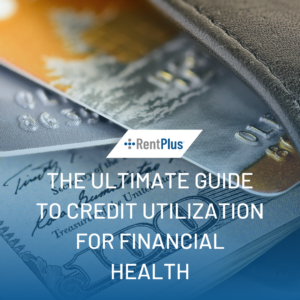Just like treating sicknesses or raising children, building your credit score is full of old wives’ tales. Believing these tales could end up hurting your credit score instead of helping it. So, we’re here to put those old wives’ tales to rest.
Here are 7 myths about building your credit score that you might be falling for:
1. I don’t need a loan, so I don’t need to worry about good credit. This is like saying I don’t need flood insurance when I live in a flood zone. It’s better to not flirt with danger. You might not need a loan today, but you never know what may happen tomorrow. It’s better just to be prepared. Having a good credit score is like having insurance. You hope you don’t have to use it, but you’re grateful that you have it when/if you need it.
2. I can’t get a loan with bad credit. If you need a loan, you can always find someone willing to lend you money, even if you have bad credit. The problem with having a bad credit score is that you’ll likely pay higher interest rates or put up collateral or money down to get it. Be careful with these types of loans, however. The high interest rates may be hard to pay and could hurt your credit score even more if you can’t make payments.
3. A mortgage is the best way to improve my credit history. A mortgage can help your credit score by showing that you can make consistent on-time payments on a large loan. However, with RentPlus, you can improve your credit score by paying your rent each month. You don’t have to own a home to improve your credit history. Your rent payments can be just as effective in improving your credit score as your mortgage payments.
4. Closing credit cards will improve my score. This is one of the most common myths about building credit scores. Canceling old and unused cards should improve your credit score, right? Truthfully, closing credit card accounts could do more damage than good.
One of the major factors that determines your credit score is your debt-to-credit ratio. If you owe $400 on credit cards and have a $2,000 limit, your utilization rate is 20%. But if you cancel a few cards so that you only have a $1,000 limit, your utilization rate is 40%. This will have a big impact on your credit score – and not in a good way.
5. Checking my credit score will hurt my score. When you check your credit score, it’s called a “soft inquiry.” Soft inquiries have no effect on your credit score. However, when a lender checks your credit score, it’s called a “hard inquiry,” which can cause a small, temporary drop in your credit score. If you apply for a bunch of credit cards or loans, you’ll get a lot of hard inquiries. But if you check your credit score online at a secure site like Credit Sesame, you won’t hurt your credit score.
6. Pay off loans early. It might be good for you financially to pay off a loan, but it’s better for your credit score if you show long-term, on-time payments. An open credit account in good standing can boost your credit score a lot more than paying off the loan early.
7. My income affects my credit score. You might make a lot of money and still have a terrible credit score. And you could be making very little money with a perfect credit score. Your income has no effect on your credit score, unless you’re not earning enough to make your minimum payments each month. But if you manage your finances wisely, you should be able to make your payments each month, no matter your income.
Your credit score depends on how well you pay your bills each month and manage your financial accounts. Don’t let these old wives’ tales convince you otherwise. If you’d like to learn more about how to build your credit and improve your finances, check out FinStrong. FinStrong will walk you through the details of credit scores and help you improve your score.



